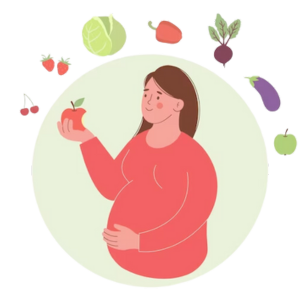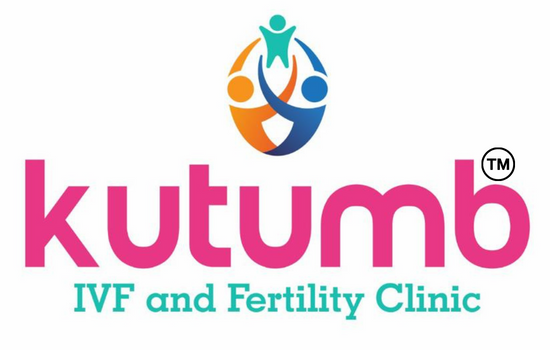 What is Female Fertility?
What is Female Fertility?
Female fertility refers to a woman’s natural capability to conceive and maintain a pregnancy. It relies on the effective release of a mature egg from the ovaries, fertilization by sperm, and the successful implantation of the fertilized egg into the uterus. Hormones like estrogen and progesterone play crucial roles in regulating fertility. For those facing challenges, seeking female infertility treatment in Visakhapatnam can provide specialized care and support.
 Importance of Nutrition in Female Fertility
Importance of Nutrition in Female Fertility
a. Hormonal Balance
Nutrition plays a pivotal role in maintaining hormonal balance, a critical factor for female fertility. Nutrient-rich foods help regulate estrogen and progesterone levels, influencing the menstrual cycle and ovulation. A balanced diet ensures that the endocrine system functions optimally, supporting fertility.
b. Nutrient Requirements
Certain nutrients are essential for reproductive health. Folic acid, iron, zinc, and vitamin D are among the key nutrients that contribute to a healthy reproductive system. These nutrients aid in the development of a healthy egg, support the implantation process, and prevent birth defects.
c. Body Weight and Fertility
Maintaining a healthy body weight is crucial for fertility. Both underweight and overweight conditions can adversely impact hormonal balance and disrupt the menstrual cycle. Proper nutrition, combined with regular exercise, helps achieve and maintain a healthy weight, fostering an environment conducive to fertility.
d. Antioxidant-rich Diet
Antioxidants, found in fruits, vegetables, and whole grains, play a vital role in protecting reproductive cells from oxidative stress. This stress can damage eggs and sperm, affecting their quality and viability. Including antioxidant-rich foods in the diet can mitigate these effects and promote a healthier reproductive environment.
 Nutrients that Enhance Female Fertility
Nutrients that Enhance Female Fertility
a. Folate
Folate, a B-vitamin, is crucial for fetal development and can also enhance female fertility. It helps in the formation of the neural tube in early pregnancy and supports overall reproductive health. Sources of folate include leafy greens, citrus fruits, and fortified grains.
b. Omega-3 Fatty Acids
Omega-3 fatty acids, particularly EPA and DHA, are essential for reproductive health. They can regulate hormones, improve egg quality, and enhance blood flow to the reproductive organs. Fatty fish like salmon, flaxseeds, and walnuts are excellent sources of omega-3 fatty acids.
c. Iron
Adequate iron levels are essential for preventing anemia and supporting overall reproductive function. Iron-rich foods such as lean meats, beans, and spinach should be included in the diet to ensure optimal fertility.
d. Vitamin D
Vitamin D plays a role in hormonal balance and supports the immune system. Sun exposure and vitamin D-rich foods like fortified dairy products and fatty fish can help maintain optimal levels.
e. Antioxidants
Antioxidants protect cells from oxidative stress and may improve egg quality. Include colorful fruits and vegetables, nuts, and seeds in your diet to benefit from the antioxidant properties.
 Foods to Avoid for Optimal Fertility
Foods to Avoid for Optimal Fertility
a. Caffeine
While moderate caffeine consumption is generally considered safe, excessive intake may negatively impact fertility. Limiting coffee, tea, and soda can be beneficial for those trying to conceive.
b. Trans Fats
Trans fats found in many processed and fried foods can contribute to inflammation and insulin resistance, affecting fertility. Opt for healthier fats like olive oil and avocados instead.
c. Sugary Foods and Beverages
High sugar intake can lead to insulin resistance, disrupting hormonal balance. Minimize the consumption of sugary snacks, sodas, and desserts for better reproductive health.
d. Alcohol
Excessive alcohol consumption can impair fertility. If you’re trying to conceive, it’s advisable to limit alcohol intake or abstain altogether.
e. High-Mercury Fish
Certain fish, high in mercury, can negatively impact fertility and fetal development. Limit the intake of shark, swordfish, and king mackerel, and opt for low-mercury alternatives like salmon and trout.
 Lifestyle Factors that Affect Fertility
Lifestyle Factors that Affect Fertility
a. Stress Management
Chronic stress can disrupt hormonal balance, affecting menstrual cycles and ovulation. Incorporating stress-reducing practices such as yoga, meditation, or mindfulness can contribute to a more harmonious reproductive system.
b. Tobacco and Alcohol
Smoking and excessive alcohol consumption have been linked to fertility issues. Quitting smoking and moderating alcohol intake can significantly improve the chances of conception.
c. Exercise Moderation
While regular exercise is beneficial, excessive physical activity can impact fertility. Striking a balance by engaging in moderate exercise can help maintain a healthy weight and support overall reproductive well-being.
d. Sleep Hygiene
Quality sleep is crucial for hormonal regulation. Irregular sleep patterns or inadequate rest can disrupt the delicate balance of reproductive hormones, potentially affecting fertility.
e. Environmental Factors
Exposure to environmental pollutants, toxins, and certain chemicals can negatively impact fertility. Taking steps to minimize exposure, such as using organic products and being mindful of workplace environments, can contribute to reproductive health.
 The Impact of Weight on Fertility
The Impact of Weight on Fertility
a. Underweight and Fertility
Being underweight can disrupt the menstrual cycle and ovulation. Achieving a healthy weight through a balanced diet and regular exercise is essential for optimizing fertility.
b. Overweight and Fertility
Obesity has been associated with hormonal imbalances that can interfere with reproductive processes. Adopting a nutritious diet, engaging in regular physical activity, and maintaining a healthy weight can positively influence fertility.
c. Body Mass Index (BMI) Considerations
Understanding the correlation between BMI and fertility is crucial. Consulting with a healthcare professional to determine the ideal BMI and create a personalized plan for weight management can be instrumental in addressing fertility concerns.
Fertility-Boosting Meal Plan
When it comes to enhancing female fertility through nutrition, adopting a well-rounded and fertility-focused meal plan can play a crucial role. A balanced diet rich in essential nutrients can positively impact reproductive health. Here’s a fertility-boosting meal plan to guide you on the path to optimal nutrition for fertility:
Breakfast:
Oatmeal with Berries and Nuts: Start your day with a bowl of oatmeal topped with a variety of berries like blueberries and strawberries. Sprinkle some walnuts or almonds for added healthy fats and antioxidants.
Mid-Morning Snack:
Greek Yogurt with Honey and Flaxseeds: Enjoy a serving of Greek yogurt sweetened with a drizzle of honey. Add a sprinkle of flaxseeds for omega-3 fatty acids, which are beneficial for reproductive health.
Lunch:
Salmon Salad with Leafy Greens: Incorporate a generous portion of leafy greens like spinach or kale into a salad, topped with grilled salmon. The omega-3 fatty acids in salmon contribute to hormonal balance and fertility.
Afternoon Snack:
Carrot and Hummus: Satisfy your mid-afternoon cravings with carrot sticks paired with hummus. Carrots provide beta-carotene, an antioxidant that supports reproductive health.
Dinner:
Quinoa Stir-Fry with Vegetables and Lean Protein: Opt for a nutritious stir-fry using quinoa as the base, loaded with colorful vegetables like bell peppers, broccoli, and asparagus. Include a lean protein source such as chicken or tofu.
Evening Snack:
Mixed Nuts and Dried Fruits: Enjoy a small handful of mixed nuts like almonds, cashews, and dried fruits like apricots. This snack provides a combination of healthy fats and natural sugars.
Conclusion
In conclusion, prioritizing optimal nutrition plays a pivotal role in enhancing female fertility. A well-balanced diet rich in essential nutrients can positively impact reproductive health. For those seeking assisted reproductive technologies, such as IVF, maintaining a healthy lifestyle and seeking guidance from professionals, like those at the Best IVF Center in Vizag, can contribute to improved outcomes on the fertility journey.
